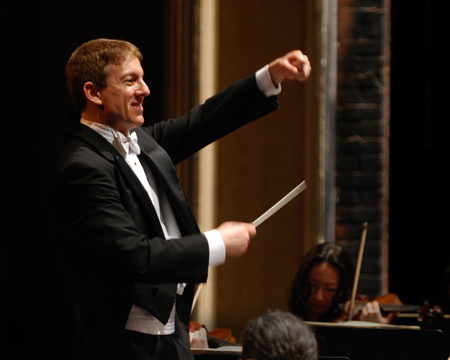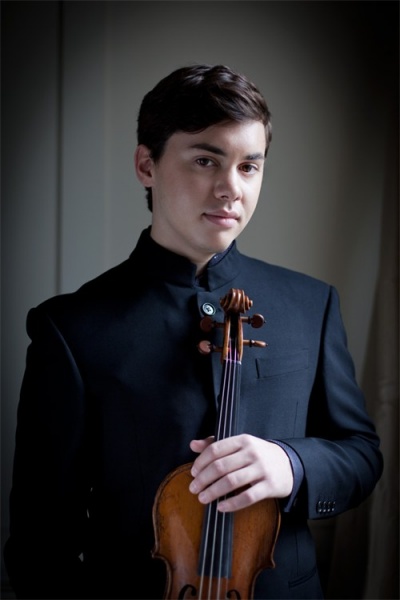Speck closes first season with Chicago Philharmonic on a romantic note

The Chicago Philharmonic ended its 24th season Sunday night at Pick-Staiger Concert Hall, its first full season under its new artistic director, Scott Speck.
Continuing the season-long theme of “The Romantic Impulse,” the program spotlighted two works of the Romantic era alongside a 20th-century work with romantic subject matter.
The Overture to Verdi’s La forza del destino opened the evening, a late-season nod to the 2013 Verdi bicentennial. The brass opening was so overdone that the force of the sound was almost painful, but things quickly settled down. The strings likewise started off a bit scrappy but recovered and were well-balanced with the winds, even if tempos were slow and the music itself seemed rather devoid of urgency, let alone destiny.
Mendelssohn’s Violin Concerto with soloist Benjamin Beilman began a bit tentatively for the orchestra but when Beilman came in and established himself, things began to gel.
Beilman preferred a rather large and lush sound for the opening movement, a bit overloaded for music so lyrical and melodically driven. His playing is confident and his technique assured, but his phrasing and his dynamics had little variance until he reached the development, when he cut back his vibrato and sound. His low notes are exquisite, his high notes clean. Beilman is a remarkable player for someone in his early 20s and has already won a host of contests.
Greater musical expressivity revealed itself in the Andante, Beilman making it quite poignant with Speck and the orchestra right there with him every step of the way. The finale, too, had extraordinary interplay between Beilman and the winds and a generally lighter approach more appropriate to the music.
The second half of the program was devoted to excerpts from Prokofiev’s ballet Romeo and Juliet, which Speck and the Chicago Philharmonic had just performed complete for a downtown run with the Joffrey Ballet.
That repetition and familiarity with the work paid handsome dividends. Fine as the playing generally was for the opening half of the evening, the polish and nuance exhibited during the Prokofiev, a far more complex score, was as if a different orchestra were performing entirely.
The novelty here was twofold: plenty of music not heard in the popular suites so often done on symphony programs, and the presence of actors from Chicago Shakespeare Theater performing scenes before the music portraying those scenes were performed.
That might seem like an odd approach—combining music meant to portray the story via dance alone juxtaposed with spoken word scenes. But thanks to director Scott Weinstein and the quality of the actors, it actually worked surprisingly well.
The Elizabethan costumes, complete with pantaloons for the narrator (Allen Gilmore) and Romeo (Andy Ahrens) seemed over the top, as did the fact that Juliet (Susan Shunk) was half a block away for the balcony scene, making intimacy rather difficult. But nonetheless, Ahrens and Shunk did manage to convey the love scenes tenderly and Gilmore made an effective narrator and yes, even nurse.
Scott Speck opens the Chicago Philharmonic’s 25th anniversary season 7:30 p.m. September 21 at Pick-Staiger Hall. The program (“Nordic Sounds”) offers Tchaikovsky’s Hamlet Overture, Nielsen’s Symphony No. 1, Arvo Pärt’s Wenn Bach Bienen gezüchtet hätte, and Niels Gade’s Violin Concerto with soloist Christina Åstrand. chicagophilharmonic.org
Posted in Uncategorized





